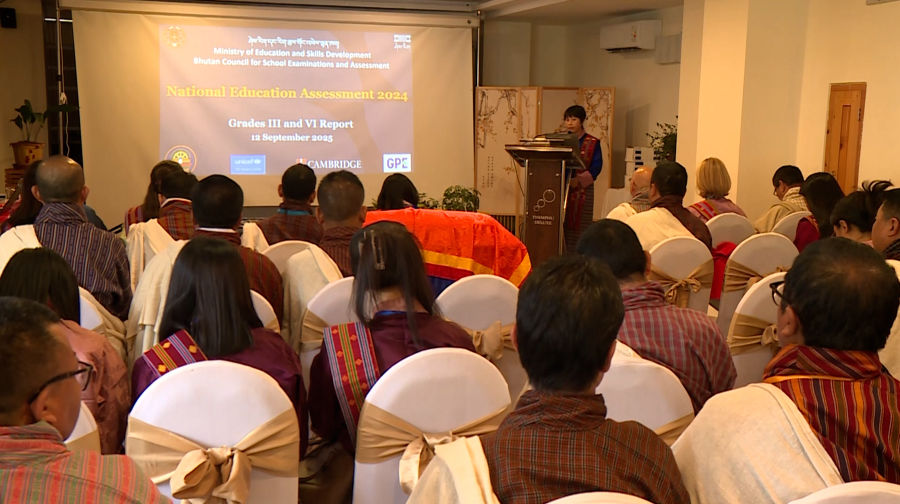 Students in urban areas performed better in English, mathematics and science subjects compared to their rural counterparts. This is as per the National Education Assessment 2024 launched today.
Students in urban areas performed better in English, mathematics and science subjects compared to their rural counterparts. This is as per the National Education Assessment 2024 launched today.
Students in urban schools can be considered lucky as they are better off than those in rural areas. They have better facilities and learning opportunities.
On the contrary, students in remote pockets still seem to struggle with learning.
The National Education Assessment 2024 was conducted in November. More than over 9,400 students of grade 3 and 6 were evaluated.
“Students from urban schools have more exposure to good facilities, while in rural schools, facilities, including internet connection, are not quite good,” said Kinley Dorji, the executive specialist with BCSEA.
The Bhutan Council for School Examinations and Assessment (BCSEA), which is responsible for ensuring quality education, recommends interventions to bridge the gap.
According to BCSEA, students who attend urban schools performed significantly better in English, Reading, Literacy and Mathematical Literacy in grade III, and in English Writing Literacy in grade VI, compared to students who attend rural schools.
Additionally, they also found that students from higher-income families consistently achieve better results than those from low-income households.
BCSEA said that the gaps in the performances could be due to students coming from higher-income being able to get more support and guidance from their parents.
Kinley Dorji said, “There is a need to give training to teachers in teaching, pedagogy training and 21st century skills. Moreover, there is also a need to provide facilities in the schools, such as internet and Wi-Fi. Likewise, there are many more interventions needed.”
The report recommends reviewing and updating the policies that support rural schools. It suggests improving the teaching and learning of non-Dzongkha subjects, especially English, Mathematics, and Science.
The assessments done in 2021 and 2024 both indicate that urban students generally perform better. It means changes have not been significant in those three years.
Sangay Chozom
Edited by Tandin Phuntsho








